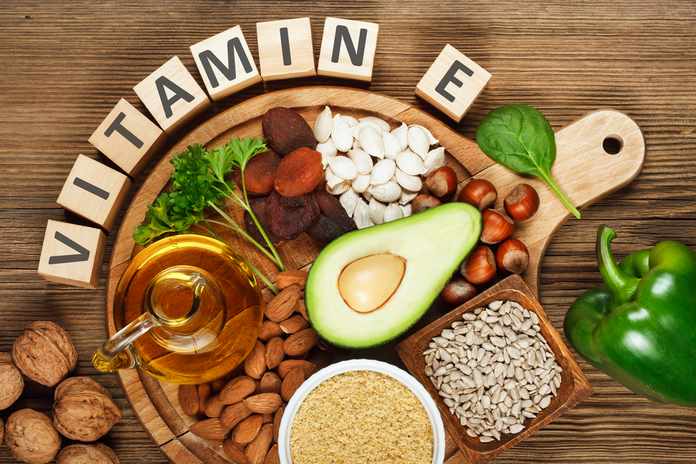Treatments of vitamin E deficiency

So many doctors prescribe supplements for the treatment of vitamin E deficiency; they might lead to severe complications in a few cases. Thus, it is increasingly advisable to attain this important vitamin by interrelating vitamin E-rich food items in the daily diet. (7)
Vitamin E is present in huge amounts in many foods such as
- Olive oil
- Red pepper
- Green leafy vegetables
- Whole grains
- Mangoes
- Nuts such as walnuts, cashews, and almonds, etc
- Avocados
- Seeds consisting of sunflower seeds
- Kiwi
Vitamin E supplementation is sometimes efficient. While it is essential to take vitamin E, it is also hugely important to keep a tab on huge consumption. Excessive vitamin E can lead to:
- Diarrhea
- Vomiting
- Muscle aches and pain etc
- Abnormal bleeding
A person must always try to correct a diagnosed vitamin E deficiency after having a detailed consultation with their doctor. Supplementation of vitamin E might lead to complications so it is better to have a healthy and balanced diet that includes a variety of foods rich in vitamin E.
Treatment through diet
You can find a wide range of foods that are rich in vitamin E. these foods include:
- Whole grains
- Nuts and seeds such as sunflower seeds, almonds, peanut butter, and peanuts
- Eggs
- Leafy vegetables
- Vegetable oils especially sunflower and olive oil
- Mango
- Kiwi
- Fortified cereals
